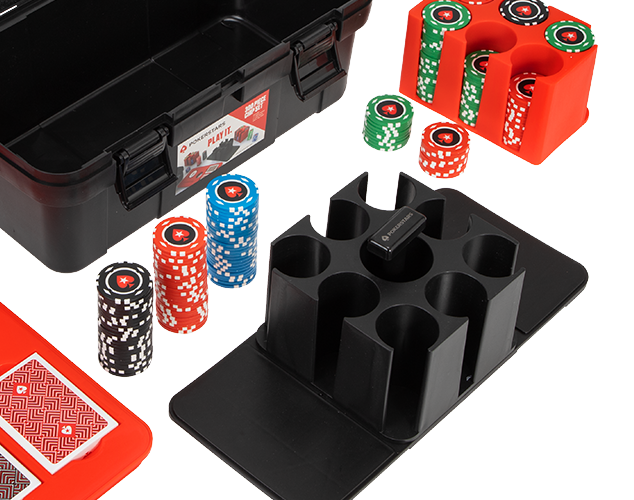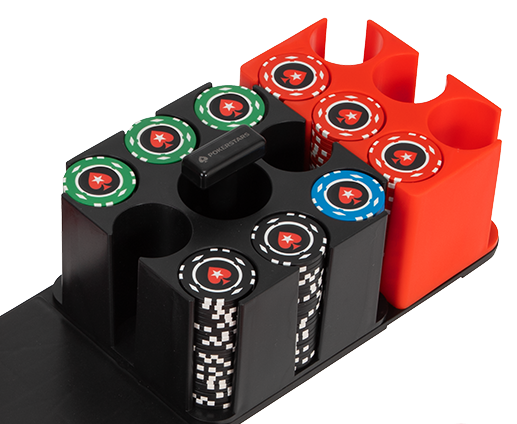It was the biggest game in Manchester United’s season. The Europa League final against Villareal in the cavernous, if covid-limited, PGE Arena in Gdansk.
The game had ended 1-1, and extra time couldn’t break the deadlock. A penalty shootout stood between each team and football glory.
Bruno Fernandez was captain of United that day. He joined rival captain Raúl Albiol on the pitch for two coin tosses presided over by referee Clément Turpin.
The first to decide which end. The second to determine who would kick first.
The small detail that can make the difference
It’s a formality carried out while TV cameras scan the player’s faces looking for signs of nervousness.
For as commentators and pundits have said for generations, all you can do is hope the football gods are smiling on you.
So, amid scenes of fingers chewed and silent prayers offered by anxious fans, it was easy to miss that both the first and second toss were won by Fernandez.
It was also easy to miss what happened next. An error of judgement on Fernandez’s part, in the eyes of some. And one that might have given Villareal the edge even before a single penalty had been taken.
It was also an example of why some in football claim penalty shootouts are really about luck. And are instead an intricate combination of preparation, skill, and strategy.


Star player Bruno Fernandez rarely has to rely on luck when he takes to the field. But should he have taken a different course in the penalty shootout vs Villareal?
Penalties are about luck. Right?
Penalty shootouts only became a regular part of football in the 1970s. Before that, tied games were usually decided by drawing lots (no skill or strategy there then).
And they’re easy to understand.
The winner is the team who scores the most from their five penalties. If scores are still level, they enter a period known as “sudden death”. The first team to miss, loses.
Over the years it has resulted in some dramatic spectacles enjoyed by everyone except the fans of the two teams involved.
And we all know why, right? Even the experts.
What the experts say…
As football legend and World Cup winning coach Franz Beckenbauer put it…
“Penalty shooting is always an uncertain affair because there is a lot of luck involved.”
Then there’s Peter Shilton who faced more than a few penalties as England goalkeeper, earning 125 caps between 1970-90.
“The main factor in a penalty shootout is luck again. You need to stay calm and focussed but the biggest thing you need is luck.”
And who could argue when even the players themselves think this way.
Hugo Lloris was clear on what cost his France team in their shootout defeat against Switzerland in Euro 2020.
“Penalties are a lottery. We did not have the luck.”
Even Marcelo, the Real Madrid and Brazil giant, knows how things work.
“Penalties are like the lottery, and you miss them when luck is not on your side.”
Revealing the optimum penalty shootout strategy
And to an extent they’re right. Luck, mixed in with nerves and courage and all those unpredictable elements.
But is there a way to reduce those variables? A way to tilt the shootout in your favour?
As the rest of this article explains, penalties, like poker strategy, have much more to do with skill and with strategy than most people think.
Get that right and, much like poker, you begin to understand more. Where the mistakes are made, and where luck is less of a defining factor.
For instance, we’ll look at…
- How one goalkeeper used extensive research as a strategy to help his team secure promotion to the premier league.
- How another goalkeeper resorted to mind games (and arguably some amateur dramatics) to help his team reach the world cup finals.
- How some managers try to use advanced shootout strategy even before regulation time is at an end.
- And how the England national team transformed their penalty strategy from luck to a skill which almost ended 54 years of hurt.
But before the practical, let’s cover the theory.
So what’s the secret?
Ben Lyttleton is a football journalist who speciality is writing about penalties.
His book “Twelve Yards” is something like The Book on the art of kicking the ball past a goalkeeper, and into the net, from 12 yards. He also writes articles on the subject at https://twelveyards.substack.com/.
He has devoted years, and many pages, to how penalties are taken, who takes them, and a multitude of other factors.
Here is the basic summary of that insight.
- The team kicking first has advantage
- Player reaction time after referee blows the whistle is important
- The body language of a player and their celebration after scoring is key
- A goalkeeper independent strategy is safer in shootouts
- Penalties one and four are the most important.
What does all that mean exactly?
Why kicking first is a big advantage
So, what was Fernandez’s mistake in the Europa League final?
He allowed Villareal to kick first.
Lyttleton is clear the importance of this decision. And while his work points to trends rather than outright statements of fact, it makes the coin toss far more significant than most people assume.
Take this example…
Imagine you’re playing in the final of a major competition. It’s the biggest game of your career and you’re in a penalty shootout.
After four penalties each the score is tied 4-4.
Before you take your team’s fifth penalty your opponent steps up to take their last kick (they won the toss and elected to kick first).
The referee blows the whistle and after a pause of a few seconds the player starts their run up, scoring a perfect penalty and sending the keeper the wrong way.
They raise their arms in celebration before heading back to their teammates who greet the scorer with hugs and head rubs.
Now it’s your turn.
You now have to take your penalty knowing that if you miss your team not only loses the game but is out of the competition.
Which penalty would you rather take?
Watch for a player’s reaction time
There was another detail in the example above that’s also hugely important according to Lyttleton.
The time taken after the whistle before the player strikes the ball tells you a lot about the mental focus of the taker.
If a player starts their run up immediately on the whistle, it can indicate nerves and a lack of emotional control. An eagerness to get this anxiety-riddled moment done with one way or another.
The opposite is the player who waits. Perhaps taking a deep breath and composing themselves before starting their run up.
It’s not a hard fast rule. Nervous players still score. Confident players still miss. But the trend suggests it has an effect.
Then there is the element that requires the most skill.
A goalkeeper independent strategy works best
Let’s get a quick definition of what this means.
A “goalkeeper dependent” strategy is often used by a team’s regular penalty taker.
Typically, a player will use a slow run up and only decide where to place the ball in the fraction of a second after the goalkeeper has committed to moving one way. It’s almost like a bluff.
Done well it’s practically unstoppable.
But there’s a crucial drawback.
Doing it well requires excellent timing and confidence, which not all players have. Especially in the final of a big competition. Which is why Lyttleton’s work suggests most players should use the opposite “goalkeeper independent” strategy.
Put another way… pick your spot, don’t change your mind, and hit the ball as hard as you can. Don’t even look at the goalkeeper.
Once you get inexperienced players trying to outwit the keeper you get into all sorts of trouble.
Which brings us to the last of Lyttleton’s rules.
Why penalties one and four are most important
You might not have paid much attention to the order of penalties. But as Lyttleton writes, it must be managed correctly.
The first gets you off to a positive start.
The fourth might just keep you in it.
And it makes perfect sense. As fans of the Egyptian national team might tell you.
The problem with Mo Salah?
Egypt faced Senegal in the final of the Africa Cup of Nations in February. If you hadn’t guessed by now, the match went to penalties.
Mohammed Salah, Egypt’s star player, and arguably one of the world’s best, was down to take the fifth penalty. But his teammate Mohanad Lasheen, on as a sub, and responsible for penalty number four, watched his penalty – number four – saved by Edouard Mendy.
Sadio Mane, Salah’s Liverpool teammate at the time, then slotted home the next to win it for Senegal.
Salah, arguably the best penalty taker on the pitch, never even got to take his kick.
Nothing is certain
Are these rules iron clad? Lyttleton is clear in pointing out that the point towards certain outcomes rather than predict them.
But it puts luck into perspective.
And there’s another part of the equation we haven’t looked at yet.
The goalkeeper.


Nottingham Forest goalkeeper Brice Samba was the star of the penalty shootout win against Sheffield United. But what was behind his remarkable performance?
Brice Samba gets his homework right
Brice Samba was known as a decent penalty stopper even before his Nottingham Forest side faced Sheffield United in the English Championship play off semi-final earlier this year.
At stake was a spot in the final at Wembley. The winner of that would earn promotion to the Premier League. So the stakes were incredibly high when the game went to penalties.
Cue cameras looking at the nervous faces of the players. All except Samba.
He looked calm, taking sips from a water bottle wrapped in a towel. The perfect poker face. The bottle would be his constant companion.
Oliver Norwood stepped up first for Sheffield United and watched helplessly as Samba dived to his right to make a fine save.
After Forest scored their first it was now Conor Hourihane’s turn. Samba didn’t move – rare from a keeper in a shootout – but made an instinctive one handed save which clattered off the cross bar and away from goal.
It was as if he knew exactly where Hourihane intended to put the ball.
With the score 3-2 to Forest, Morgan Gibbs-White, probably the best player on the day, lined up to take his penalty for United.
Watching Samba closely at this point was fascinating. It also spoke to what would later be revealed as his master plan.
A fraction of a second before Gibbs-White’s right foot strikes the ball, you see Samba start diving to his right. That’s where the ball would be headed, and Forest will be in the Premier league for the first time since 1999, in no small part to Samba.
You can watch it here. Pay particular attention to Samba.
Was it down to luck? There’s always some. Especially where the crossbar was concerned. But what was revealed something else.
It all to do with that water bottle.
Strapped to the outside of it, and hidden by the towel, were instructions showing the penalty preferences of every Sheffield United player.
Some might call it a cheat sheet. Others would call it meticulous planning after extensive homework.
The penalty “specialist”
That’s one way to swing things in your favour. But there are other ways too. Including subbing on a penalty specialist.
The strategy involves the manager throwing on the backup keeper with a better record saving penalties, in the dying seconds of regulation time.
One of the most recent examples was in the League Cup final at Wembley.
Chelsea manager Thomas Tuchel brought on Kepa Arrizabalaga to replace Edouard Mendy (who you’ll remember saved the penalty against Egypt to win the AFCON final. But let’s put that aside for now).
Tuchel believed Kepa was the better penalty stopper. Or perhaps thought such mind games would lead the Liverpool players to think he was.
Even Lyttleton was convinced.
#CFC have won their last three penalty shootouts – the best run in their history – all with Kepa in goal. So here he comes!
— Ben Lyttleton (@benlyt) February 27, 2022
But the outcome was not exactly what Chelsea hoped for.
Not only didn’t Kepa save a single shot. It was his penalty, with the scores tied at 10-10, which sailed over the bar, sending the Cup to Merseyside.
Strictly dancing?
Ending on a more positive outcome, for Australia at least, was the performance of Andrew Redmayne.
Performance is about the right word.
Like Kepa, Australia’s backup keeper Redmayne came on in the closing seconds of extra time in a World Cup playoff against Peru. He then tried to get into the head of each Peru player by danced his way thought the shootout.
It looked for a while like a public display of eccentricity that would come to nothing. Then when he saved one it looked like a stroke of madcap genius
The dancing goalkeeper sends Australia to the World Cup pic.twitter.com/kguSd4mdYL
— Sean (@sean66915299) June 13, 2022
Luck? Not exactly. Skill? Perhaps a little, if only that he managed to stay on his line while flapping his arms and legs around. Strategy? Almost certainly.
England’s new policy of belting it?
So where does that leave us?
Well, let’s finish with the England national team. They seem to sum up a team that has at least tried to learn from the past. As their manager Gareth Southgate knows more than most, and which Lyttleton’s writes about in detail here.
It was his penalty miss in the Euro 96 semi-final that ended that memorable Summer for England fans. A penalty miss which had Southgate’s own mother asking him; “Why didn’t you belt it?”
Back then it was a case of the manager (Terry Venables at the time) asking “who fancies one?” Confident players stepped up. The less so stayed quiet and avoided eye contact. I don’t mean that to sound critical either. It makes sense with so much at stake.
Flash forward to 2022 and things are a bit more organised. The players are well drilled, knowing all too well that shootouts can go beyond the first five kicks into sudden death, where players who initially backed away from taking a penalty are pressed into service.
Southgate himself knew who to pick, even leaving out Jack Grealish from the original five despite his wish to take one.
I said I wanted to take one!!!!
The gaffer has made so many right decisions through this tournament and he did tonight! But I won’t have people say that I didn’t want to take a peno when I said I will… https://t.co/3mBpKyMoUV— Jack Grealish (@JackGrealish) July 12, 2021
But even with all this preparation someone must miss.
And to wrap up this case that says there is more to penalty shootouts than luck, it’s worth remembering that it’s also a very human moment.
Even the very best players are not perfect and it’s unfair to blame them for one error, which as we’ve seen could have owed more to the preparation of the goalkeeper.
So maybe there is a little luck involved.
The perfect penalty
As for the perfect penalty, Antonin Panenka probably holds that title. His name is now synonymous with the cheeky chipped shot down the middle, landing on the goal line before bouncing into the net, delivering maximum humiliation to the stranded goalkeeper.
46 years ago today, Antonín Panenka won Euro 1976 for Czechoslovakia and changed the game forever 🔥
(via @EURO2024)pic.twitter.com/5lNhKsLkDp
— B/R Football (@brfootball) June 20, 2022
That penalty won Euro 76 for what was then Czechoslovakia.
Or there’s this one.
Luck? No. Strategy? No. Skill? No. Brilliant? Almost certainly.
But what makes a brilliant penalty? Like with Panenka, it needs something out of the ordinary. From a neutral’s perspective it might be something like this…
This penalty is brilliant. #ytfc pic.twitter.com/cFOAsvfjJq
— James Healey (@Jimmer84) October 20, 2021
At least one person involved got unlucky.
Back to Top











